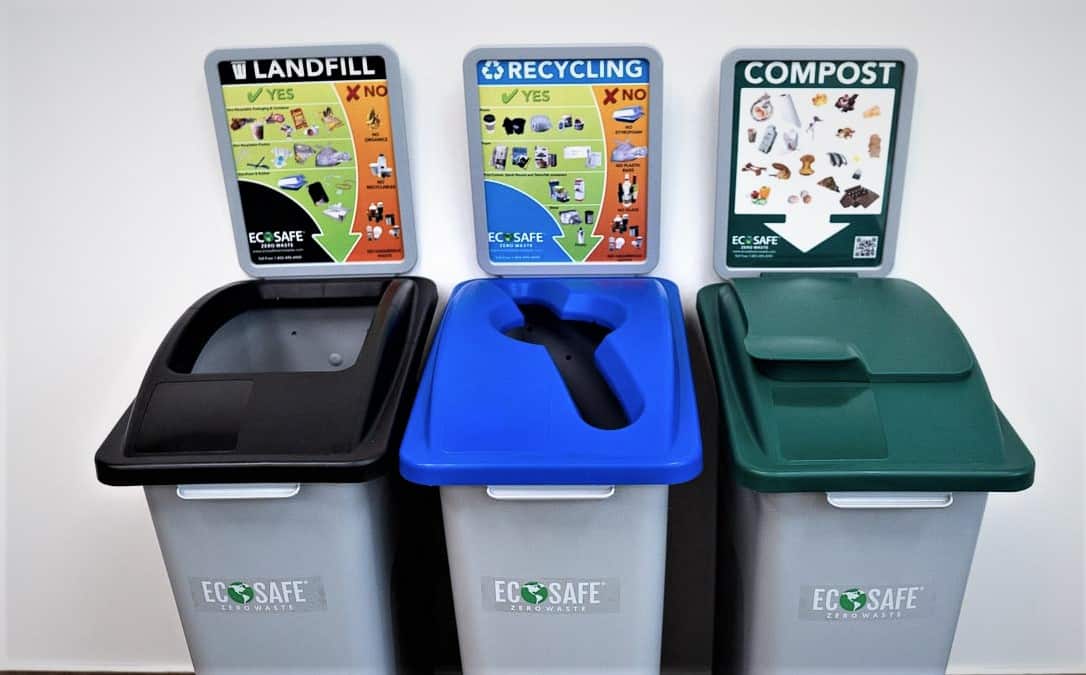Why should you change?
You know that you need a driver’s license to drive a vehicle on roads and highways. You know you’re not allowed to litter in public places. And you know that it’s against the law to rob a bank. Many laws and regulations in this country are there for our protection and safety. Because people have grown up with, or become accustomed to these laws, they are often followed without thinking twice about it. When a new law is created for the safety of ourselves or our planet, it can be difficult to get people to change the way they have always done things and follow it, regardless of the benefit it provides. This is currently the case with new laws that are being passed, seemingly daily, surrounding separating food waste away from the landfill waste stream.

Are there laws about it?
Because of the massive benefit that separating food waste provides, laws are popping up all over the US and Canada that implement consequences for those that stick to the old habit of throwing food waste and/or recycling into the trash. If these laws haven’t reached your hometown yet, there is a very good chance that they are already being discussed and may even be implemented soon. Here are a few examples of food waste separation laws:
- Seattle, Washington1 has a law that mandates every homeowner place their organics and food scraps in a separate bin for collection and diversion to a composting facility. If a homeowner is caught not following this regulation, they can and will be fined by the city.
- In the City of San Francisco2, it is mandated that every waste generator be required to divert their food scraps from going to the landfill. For example, in a condo building that has any number of units; residents are required to place their food scraps in a different container to be collected and diverted from the landfill. Their trash and recycling bins can be searched and, if food scraps are found in them, the entire condo association can be fined and forced to remove the food scraps from the incorrect bins.
- In Nova Scotia, Canada, they have taken the step to require clear plastic bags for garbage disposal to more easily see recyclable and compostable materials that have been improperly disposed of. When contamination is found, the resident will receive educational materials about how to correctly sort their waste. If the problem persists, garbage may remain uncollected until the contamination is no longer found.
Learn, adapt, and don’t get fined
In municipalities and states all over North America, these types of laws are already on the books or are being pushed through the legislative process. Yet, in many cases, the majority of citizens don’t know about the laws, or resist making the changes necessary to follow them.
Why is there such a large disconnect between these types of laws and regulations and the citizens that are required to follow them? One reason is a great lack of education. If you didn’t know that robbing a bank was against the law, you may think it was perfectly acceptable to walk into your local Wells Fargo and take a couple thousand dollars to tide you over! Thankfully, from a young age, nearly everyone is taught that robbing a bank is wrong, littering is bad for the environment, and driving without a license is dangerous. Because we’ve grown up knowing this, our habits have already been adjusted and following these rules isn’t a burden, it’s a necessity for the safety and well-being of our world.
What’s happening in your town?
You may not be up-to-date on all the new laws and regulations that occur every day in every city, county, state, and country, but not knowing these laws does not make them any less enforceable. Seeing that these changes are coming, no matter where you’re located, the best thing you can do for the environment and to avoid negative consequences is to educate yourself on what is required and adjust your habits accordingly.

Change is easy with EcoSafe®
At EcoSafe® Zero Waste, we’ve created programs that help you easily understand what is being asked of you, and give you all the tools you need to succeed without major disruptions to your norm. We’ve spent the past 20 years doing this. And, now that laws are regulations surrounding food waste separation are becoming more common, we are prepared to help you make composting second nature.
EcoSafe® manufactures the tools (compostable bags, bins, dispensers, and patented programs) to assist waste generators in complying with these new laws. To learn more about EcoSafe® and how we provide these tools to waste generators, municipalities, and haulers, please visit our website, or contact us directly. Check back for future blog posts where we will dive into the specifics of the most successful waste diversion laws and how you can enact similar laws in your community.
- SMC 21.36.082 and 21.36.083 – Requires that residents and businesses do not put food scraps, compostable paper, yard waste, and recyclables in their garbage.
- City of San Francisco, CA – Mandatory Recycling and Composting Ordinance no. 100-09
Food loss and waste occur at each stage of the supply chain. The biggest proportion (about 37%) happens in the home.
ReFED, 2021
